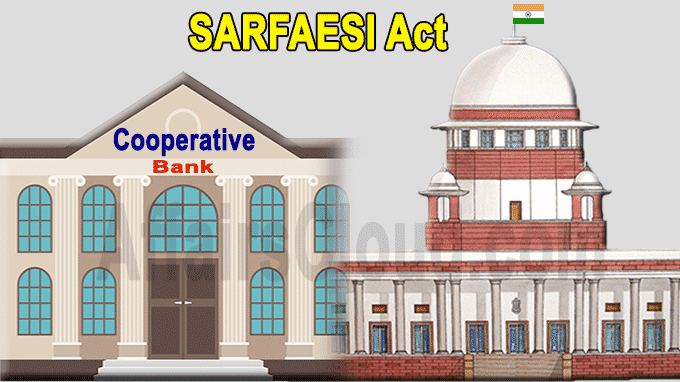A five judge Constitution Bench of the Supreme Court passed a ruling that cooperative banks established under a State law or multi-State level societies come under the Securitisation and Reconstruction of Financial Assets and Enforcement of Security Interest (SARFAESI) Act of 2002.
- In this regard, the Section 2(1)(c) of SARFAESI Act of 2002 empowers the cooperative banks with recovery procedures including seize and sell defaulters’ assets.The recovery procedure u/s (under section) 13 of the Act is also applicable to such banks.
- SARFASI rights enable cooperatives get better control over handling defaults and on the negotiation table with defaulters.
- Constitution Bench: This 159-page unanimous judgement has been passed by a constitution bench headed by Justice Arun Mishra which also included justices Indira Banerjee, Vineet Saran, Mukesh kumar Rasikbhai Shah and Aniruddha Bose.
Key Points from Judgement:
-Cooperative banks were bound by the provisions of the Banking Regulation Act, 1949, and all the other legislation applicable to banks under the RBI Act, 1934. As a result, cooperative banks will have to comply with these rules.
-Co-operative banks involved in banking activities are covered u/s 5(c) & 56(a) of the Banking Regulation Act, 1949 which is a legislation relatable to Entry 45 of List I.
Parliament can prescribe recovery process for cooperative banks
The bench also ruled that Parliament can enact a law as the activity of banking done by cooperative banks is within the purview of Entry 45 (Banking) of List I of Seventh Schedule of the Constitution of India.Therefore, it has rejected the contention that Parliament cannot prescribe recovery procedures and that is within the domain of the States’ legislatures.
- The Seventh Schedule to the Constitution of India defines and specifies allocation of powers and functions between Union & States. It contains three lists; i.e. 1) Union List, 2) State List and 3) Concurrent List.
About SARFAESI Act, 2002:
The Act prescribes a procedure for faster recovery of dues. It allows secured creditors to take possession of the assets of a borrower who fails to pay dues within 60 days of demanding repayment. It enables banks to reduce their non-performing assets by adopting measures for recovery or reconstruction.




